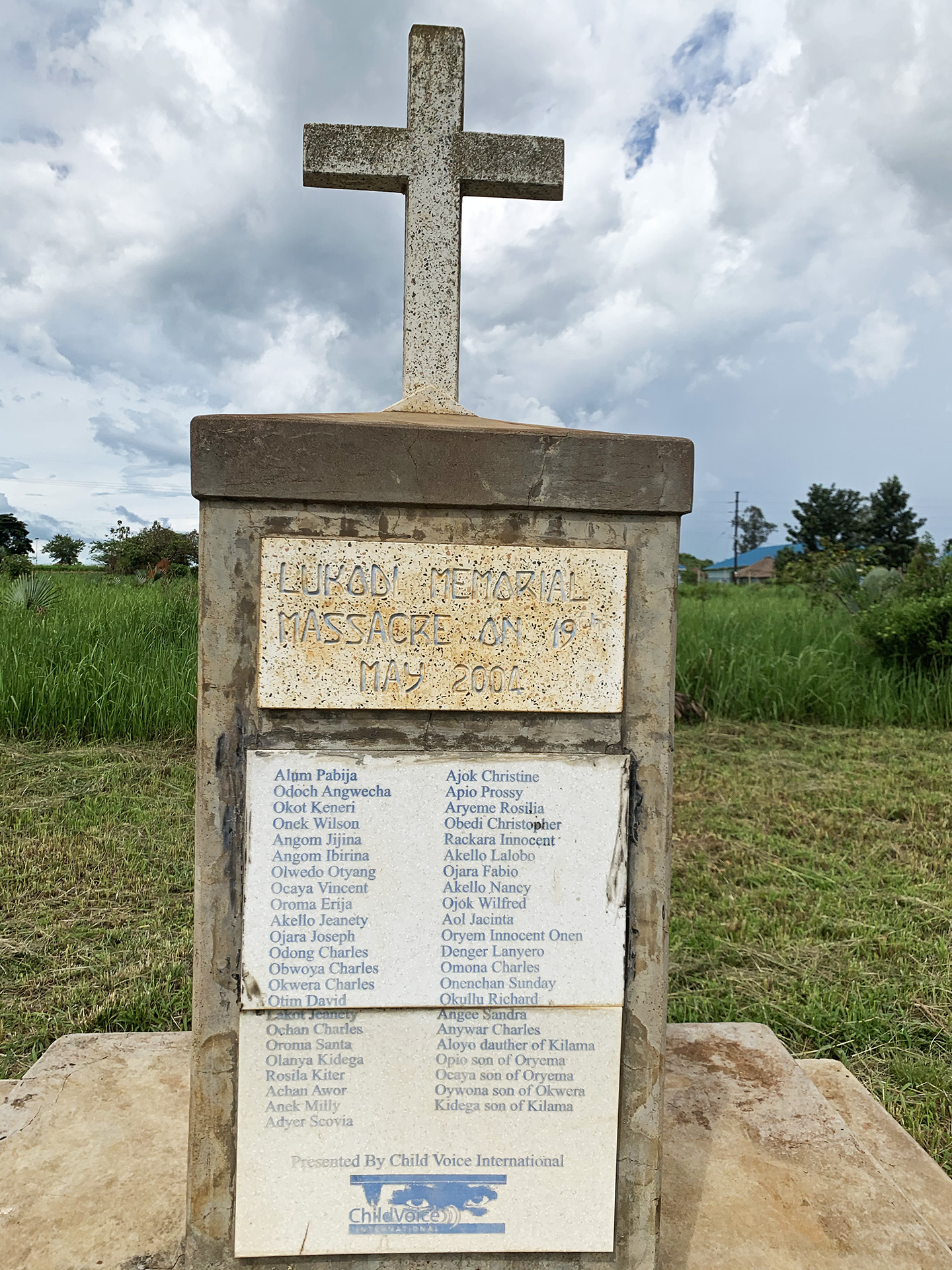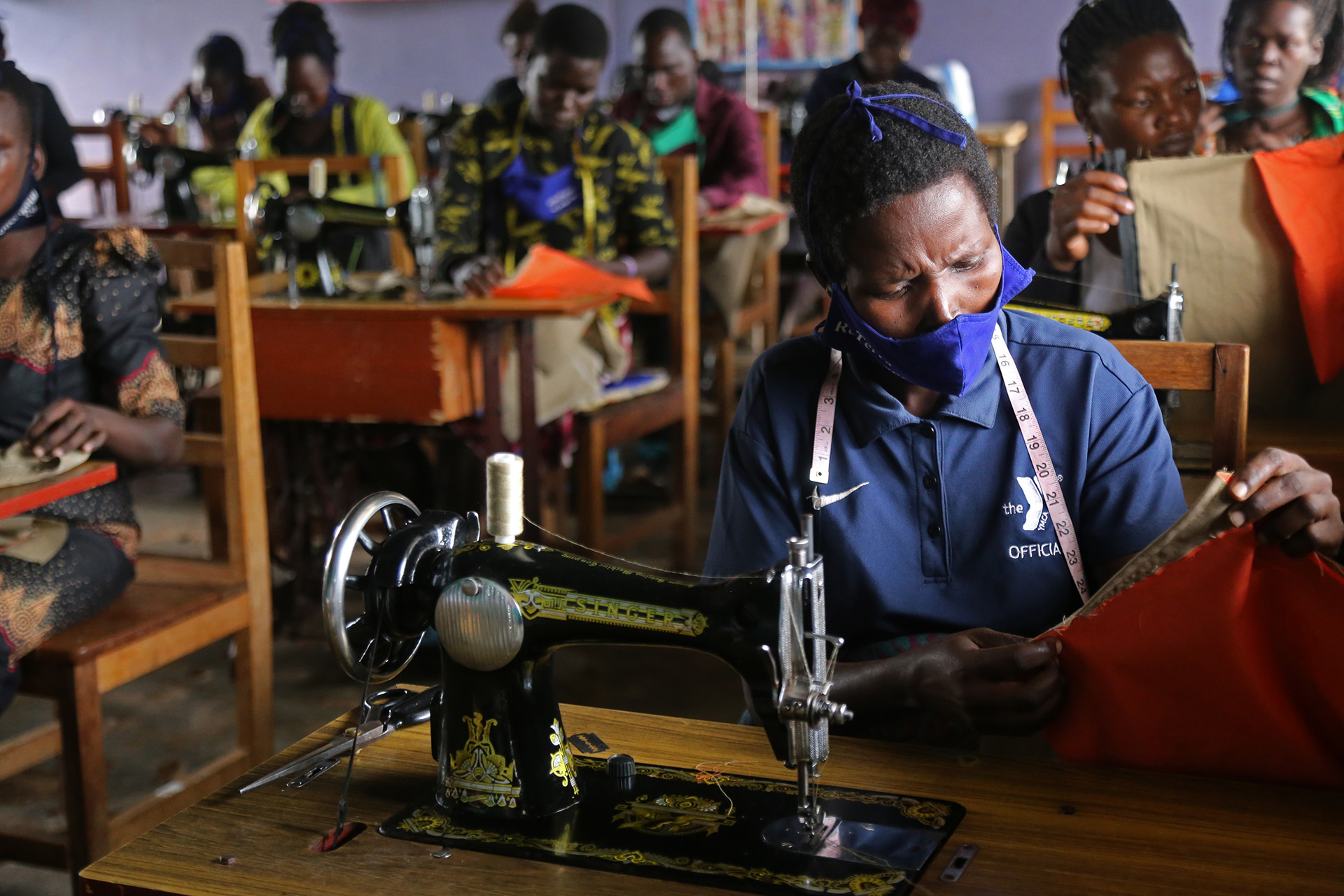In May this year, the International Criminal Court sentenced Dominic Ongwen, a former senior commander of Uganda’s notorious Lord’s Resistance Army, to 25 years in prison on more than 60 counts of war crimes and crimes against humanity.
Ongwen’s conviction was a landmark. It was the first ICC prosecution of a member of the indiscriminately brutal LRA, and the first time forced pregnancy was ruled as a war crime by an international court.
But for the survivors of the group’s three decades of rampaging violence, there are still many layers of unresolved trauma to sort through, and a still-pending issue around reparations, which can help rebuild their lives.
Those emotions are about to be revisited as Ongwen’s defence team prepares its appeal against his sentencing in the coming weeks.
To explore what part, if any, the ICC’s six-year trial process has played in reconciliation in northern Uganda, The New Humanitarian spoke to survivors of LRA massacres, peacebuilding groups, and Ongwen’s wives – who were abducted as girls and have now returned to live in a community still scarred by the insurgency.
Ongwen’s sentencing on 6 May was screened in the northern city of Gulu to a packed audience under the shade of a marquee. Most present wanted to see him behind bars – but not to “die in jail”. When the judges said they had deliberated handing down a life sentence, it drew cynical smirks from some in the crowd, even though many had been LRA victims.

A powerful sentiment, expressed again and again, was that Ongwen had been unfairly singled out: that other equally murderous LRA commanders had been granted amnesty by the Ugandan government, and that members of the security forces – also accused of rights violations – had escaped prosecution entirely.
“This is a problem that happened across northern Uganda,” said Walter Ochora, taking his turn to speak when the microphone was passed around by the organisers of the event: the Foundation for Justice and Development Initiatives (FJDI), the ICC’s civil society partner.
“Dominic is now like Jesus: carrying the cross for everyone and what they have done,” said Ochora. “He should be given a light sentence.”
Massacre in Lukodi
Aol Jackline still struggles to block out the terror of a May evening in 2004 when LRA fighters – under Ongwen’s orders – swept through her village of Lukodi, about 20 kilometres from Gulu. When she heard the ICC sentence over the radio, she held her head in her hands.
The LRA came to punish the community for its perceived collaboration with government forces, and to loot food aid that had just been delivered. As the outnumbered “home guard” and a few soldiers ran, the LRA took their revenge: People were gunned down in the open; others were dragged out of their hiding places and shot.
Jackline recounted how she was ordered “not to tremble'' as everyone else in the room where she was hiding was executed. She only screamed when her one-year-old daughter, Angee Sandra, was killed. For that, she was knocked to the ground and stabbed in the back with a bayonet. Pulled to her feet, she was then forced-marched deep into the bush and – when the group finally stopped – assigned two men as “husbands”. She was 14 years old.
“The 25-year sentence that has been given to Ongwen cannot even restore an inch of the gaping hole that he has created in my life, in my family, and in the whole community,” Jackline said when The New Humanitarian visited Lukodi, a day after the ICC ruling.
Read More → Should child soldiers be prosecuted for their crimes?
“If Ongwen would be sentenced for about 70 years, and then compensation was given to the ones who have suffered, that would maybe do something.”
Akono Janet lost two sons in Lukodi. She arrived in the village just as the attack began, and hid in a latrine until the shooting died down. When she emerged, she discovered her eldest son, Dennis, had been abducted, while her nine-year-old, Christopher, had been shot dead.
“The sentence won’t bring my son back. I’ve lost that treasure,” she told The New Humanitarian. But, she added: “We don’t want Ongwen to be sentenced to life in prison: Twenty five years is enough.”
The Lukodi massacre was one of four atrocities committed between July 2002 and December 2005 that Ongwen was held responsible for – he was found guilty on 61 of 70 counts of war crimes and crimes against humanity. A humble memorial is the only official recognition of the more than 60 people that died in Lukodi.


While people condemn his crimes, northern Uganda remains divided over what was the appropriate punishment for Dominic Ongwen, convicted on 61 out of 70 counts of war crimes and crimes against humanity. Women in particular – often the victims of the LRA's sexual violence – had hoped for a harsher sentence. (Katumba Badru/TNH)
A dreadlocked boy soldier turned LRA brigade commander, Ongwen has been in detention since 2015. The pictures from news clips the survivors now see is of a disconcertingly prosperous-looking man in a crisp suit at the centre of an expensive and complex European court process.
“[Some survivors] feel so bad, looking at themselves; they don't have anything to eat. They look at him; he is going to eat three meals a day, or four. His skin is smooth, but they have wrinkles,” said Jackline Atingo, a research consultant with the Firoz Lalji Centre for Africa at the London School of Economics who has spent over a decade exploring the challenges faced by LRA survivors.
“Here, prisoners go digging [as labourers] every morning,” Atingo told The New Humanitarian. “They want him to face life here, and [to] go through the same problems they face: having to find food, having no work.”
Compensation for crimes committed
Reparations are still a burning issue in northern Uganda, where the LRA’s violence forced around 1.8 million people from their homes. The group abducted more than 38,000 children – many forced to serve as child soldiers or sex slaves.
The ICC has invited submissions from those looking for compensation – emphasising that reparations are also an essential part of justice – and has urged donor contributions to a separate victims’ trust fund to cover the financial awards.
The survivors The New Humanitarian contacted said all they wanted was to be able to buy a plot of land to help them make a fresh start.
Despite the brutality Ongwen displayed, there is awareness that he himself was a victim. He was abducted aged nine, as he walked to school, and many in northern Uganda blame LRA leader Joseph Kony, who is still at large, for corrupting him. Ongwen’s parents were killed by the LRA a year after he was kidnapped.
During his more than 25 years with the LRA, Ongwen went on to enslave at least seven girls aged between 10 and 14 who became his “wives”. Between them, they have 17 children.
Bertram Schmitt, the presiding judge, ruled that Ongwen had also coerced other girls to have sexual relations with men under his command, calling these actions a “coordinated and methodical effort” to commit sexual and gender-based crimes.
‘Dominic’s wives’
The young women, described by the media as “Dominic’s wives”, struggle to process and reconcile their experiences, complicated by the stigma they still face in northern Uganda.
The ICC verdict came as a devastating blow to Akao Dillis. “It hurt me,” said the mother-of-two, who was abducted in 2004 aged 14. “I thought they would release him, and he would come and help us with the children.”
Dillis is taking lessons in fashion design with Terra Renaissance, an NGO that supports self-reliance among conflict victims. She shyly narrated her story as rain pelted down on the classroom where she sat at a desk, her baby son – Ongwen’s child – reaching up at her to be held.
“I was scared of [Ongwen] at first, but later I grew to love him,” she told The New Humanitarian. “I think about him a lot and sympathise with him.”

Dillis is the only wife who went to The Hague for a conjugal visit while Ongwen was being held during his trial. She gave birth to a baby boy, named Ayena Bosco after Ongwen’s lead defence lawyer, Krispus Ayena Odongo.
Ongwen’s first wife, Aromorach Eveline, who was abducted in 1996 and forced to fight on the front line, was less sympathetic. She welcomed the jail time and felt the sentence was fair. But she was relieved the judges did not decide on life imprisonment: “That is the father of our children, and we cannot erase that.”
Ongwen’s wives face deep-seated hostility from some – along with many other survivors who were taken by the LRA. “There is a belief that those who were abducted carry the burden for whatever happened here, whether you were a girl or a boy,” explained Otema Jimmy Fred of Terra Renaissance.
Atingo, the researcher, believes society needs an attitude adjustment when dealing with the LRA’s abductees. She narrowly avoided being kidnapped herself when she was a teenager: saved only by the pleading of one of her teachers.
“The outside community has to accept that these children were abducted; it was not their fault. They were made to do things that were not right,” Atingo said. “We have to accept them for who they are, for what they did. That is the process of reconciliation.”
Forgiveness and amnesties
“Truth-telling” – facing up to what you have done – represents one of the cornerstones of reconciliation practised in northern Uganda’s Acholi culture. A ceremony known as Mato Oput brings perpetrators face to face with those they have wronged, to talk about the crimes they committed, ask for forgiveness, agree on reparations – and then to move on.
It has been used in conjunction with a formal government amnesty that offered blanket immunity to LRA combatants who abandoned the group and renounced involvement in the war. That act of clemency incentivised several commanders to surrender, and they were granted freedom and a payout from the government.
More than 26,000 former combatants benefited from the amnesty law promulgated in 2000, enabling them to go back home without fear of prosecution. Once they returned to their communities, they took part in Mato Oput.
“Once the rituals are done, you go back to normal life and no one can touch you because the Mato Oput process is protecting you,” explained Nkayimbi Sarah, programme manager for the FJDI, the ICC’s local partner.
“The women are seeing [ex-LRA commanders] walking around every day, earning money, being paid. It’s like they are being paid for raping them. They cannot reconcile that.”
In 2006, the law was amended allowing the exemption of named individuals. Ongwen, who had been indicted by then, was excluded from the amnesty agreement – as was Kony, his deputy Vincent Otti, and the LRA commander Okot Odhiambo. Both men have since died.
Several ex-LRA commanders given amnesty were said to have committed atrocities worse than Ongwen’s – and also abandoned their wives and children in the bush.
“The women are seeing them walking around every day, earning money, being paid. It’s like they are being paid for raping them. They cannot reconcile that,” said Atingo. “Ongwen’s sentence is a lesson for all.”
During the war, the Ugandan army was also accused of raping women in camps for displaced people – and the victims have received no recognition, compensation, or help.
“Government soldiers also carried out atrocities, sexual assaults, and massacres,” noted Sarah of the FJDI. “There is no open, clear accountability for that. [The authorities] are silent.”
What is needed, Sarah added, is a national day of remembrance for all the victims of the war, as a step towards reconciliation – one unlikely to be taken by the government of Yoweri Museveni, a former rebel leader who has allowed the army a significant degree of impunity.
jj/oa/ag







